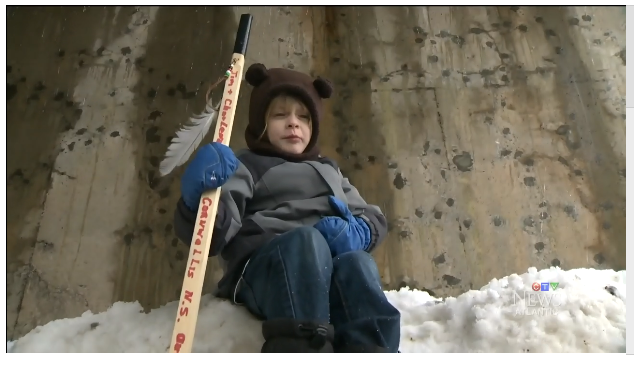Can speech therapy saves lives? We say that it can. That certainly is a bold statement, but here’s the proof.
One year ago, Chase, a five-year-old, Canadian boy with autism could not put more than one or two words together to communicate. After a year of therapy, Chase was able to save a man’s life with his words.
Watch the touching video from CTV news called Five-year-old boy with autism finds the right words to help rescue an injured man. Click the title to view it.
Here’s an overview
The Maritimes in Canada, just north of Maine, had a harsh winter. Just like Boston, snow was piled up high everywhere. Chase and his grandfather went out for a walk on the plowed sidewalks between the walls of snow. Suddenly, Chase used his words to say, “Stop”. His dutiful grandfather stopped for a moment, then started to step forward again. Chase used his words once more and said, “No Poppa Jim, Listen. Listen. Help.” That’s when Chase’s Poppa Jim, heard what Chase heard, a whimpering cry. They climbed a massive snow pile to see what was causing the sound. What they found was a man lying in the snow completely hidden from view. The man was injured, semi-conscious and cold. The young hero and his grandfather called for an ambulance.
The story highlights the importance of speech therapy for children with autism who have difficulties communicating.
Did you know that one of three people with autism have trouble with speech production and non-verbal communication? This leads to communication issues like:
- Being totally non-verbal
- Limited use of intelligible words.
- Unexpressive tone of voice (flat affect or difficulty with prosody of speech).
- Echolalia, repeating what others say.
- Limited conversational skills.
- Trouble making eye contact
- Trouble making or understanding non-verbal cues like facial expressions, body language and gestures.
- Trouble understanding the meaning of words and symbols.
Because of these issues, a child with autism must learn how to speak (produce the sounds) and converse (use language to communicate). That is where speech therapy comes in.
The benefits of speech therapy for autism
Speech language pathologists treat both speech and language disorders. The SLP should be an integral part of the team of professionals who work with children with autism along with the Developmental Pediatrician, Pediatric Neurologist, Neuropsychologist, Behavioral Specialist, Occupational Therapist and Physical Therapist.
A pediatric speech language pathologist can help the child with autism improve the following:
- Articulation of words – The production of sounds to make words.
- Use of language – This is how we use language including requesting, protesting , terminating activities, gaining attention, conversational turn-taking, etc.
- Conversational skills including the use of nonverbal communication
- Self awareness including the appropriate time and place to communicate.
- Self confidence including initiation of conversations and interacting with peers.
- Comprehension of language both verbal and nonverbal – Improving semantics (vocabulary) and syntax (word order) and ability to process verbal language in order to respond appropriately.
- Augmentative/Alternative communication
- Sign Language
- Dedicated Devices such as a Dynovox
- IPAD- with augmentative communication app such as Prologuo2go
- Picture Exchange System
The Kidmunication Point
It’s very important to start speech language therapy for children with autism as early as possible. The benefits of speech language therapy for autism are numerous, One benefit is safety. A child with autism needs to be able to call for help. As Chase showed us so courageously, newly found words to a child with autism may even help save a person’s life.

